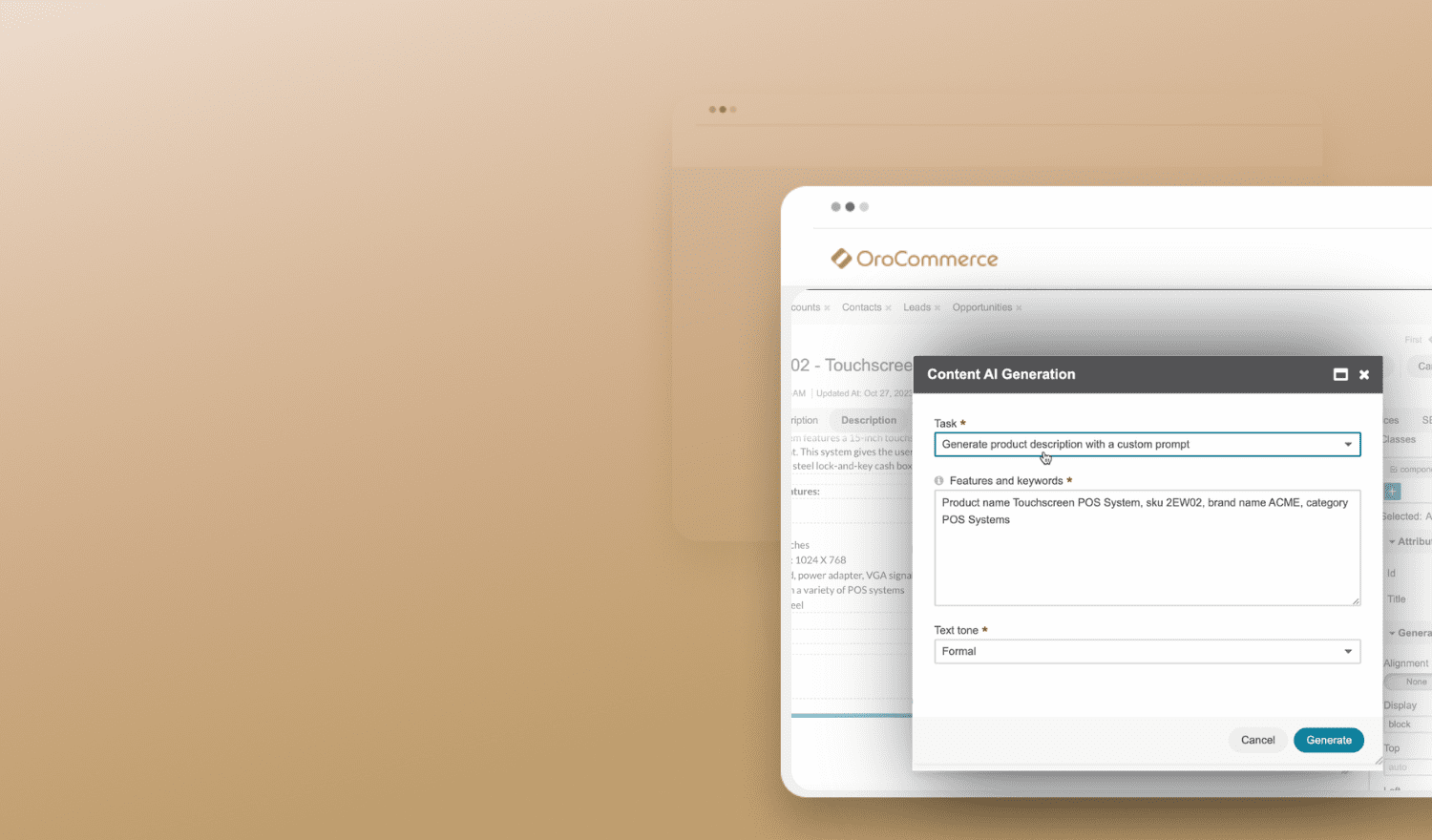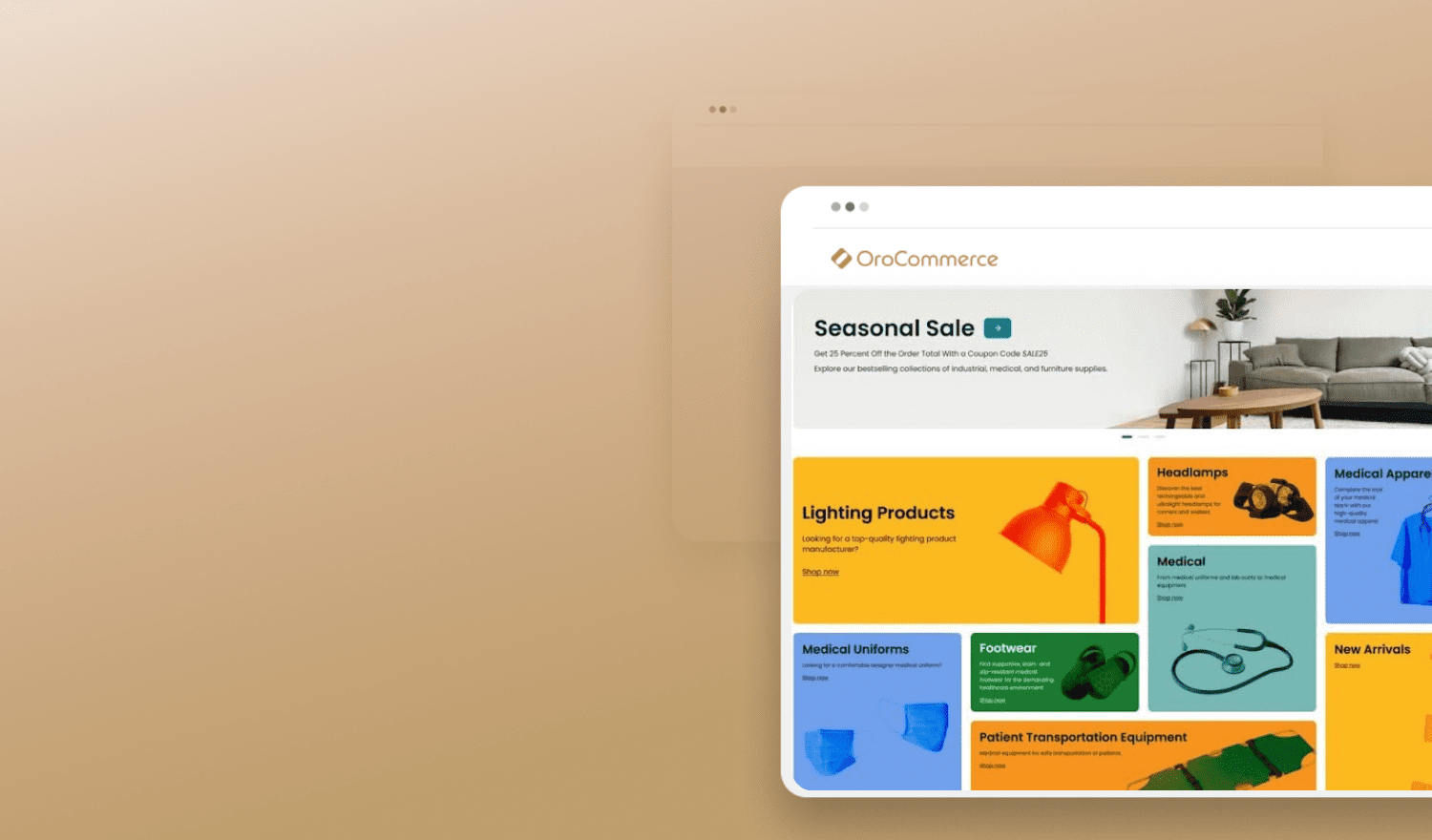The soaring adoption of eCommerce with manufacturers selling direct to businesses has now led to the search for a balanced strategy. On one hand, eCommerce technology allows manufacturers to speed up their sales cycles and have a greater influence on customer acquisition and retention – especially for manufacturers selling direct to consumers. On the other hand, manufacturers selling direct to businesses risk disrupting their existing distribution channels by openly competing against their partners through an exclusive eCommerce storefront.
To overcome these challenges, manufacturers should first establish an easy-to-use business environment that encourages their clients and partners to embrace an eCommerce platform. This is why B2B eCommerce is a key part in the overall eCommerce strategy for companies sitting on top of the supply chain. It helps transform their distribution channels to improve their capacity and set the ground for selling direct to consumers. Considering the vast personalization options found in modern B2B eCommerce solutions, it is possible for manufacturers to set up win-win business relationships across clients, partners, and distributors without compromising the sales channel.
Benefits of B2B eCommerce
Recent data clearly shows that B2B eCommerce is gaining popularity among manufacturing companies. According to a 2018 survey by B2BecNews, about 40% of manufacturers already have a B2B eCommerce website, while 70% of manufacturers without a B2B eCommerce site expect to have one in two years or less. In the same survey, respondents named their top reasons for selling online, which included: increasing sales (72%), selling direct to consumers (56%), and selling direct to retailers, dealers, wholesalers, and distributors (44%). Modern B2B eCommerce solutions enable manufacturers to stand out from their competition by creating a premium shopping experience with the following features:
- Personalized Online Shopping Experience – Robust catalog management capabilities allow sellers to customize product catalogs for specific companies, departments, strategic business units within a corporation, and even individual buyers. Each group has access to their own portal within the webshop, in which buyers are able to view their personalized product assortment to quickly purchase products. Sellers can also easily set up personalized price lists and discounts for their different clients.
- Self-Service Capabilities – Another critical feature of a B2B eCommerce solution is enabling a self-service model which allows buyers to easily submit order forms, purchase orders, and request for quotes. Sellers can also respond to order submissions and quote requests through the backend and immediately send an online quote back to the customer.
- Rich Content Management and Optimization – Well-organized product information is critical, especially when it comes to the B2B shopper who has no time to waste. According to Forbes, 90% of shoppers ranked detailed content as being extremely important during the purchasing process. A true B2B eCommerce platform should be flexible enough to support media-rich catalogs and configurable product information pages, thus providing buyers with the information they need to make purchasing decisions. Using your B2B eCommerce website as a content management system will help eliminate content silos and ensure up-to-date product information is always provided to the customer.
- Customer Data Analytics – One valuable benefit for manufacturers selling direct to businesses and consumers via an eCommerce portal is the ability to gain a better understanding of their customer’s needs. By collecting and analyzing customer data, manufacturers can better understand their customers which is not an option when businesses decide to sell on B2B marketplaces like Amazon and Alibaba. Manufacturers can gain deeper insights on the most popular product configurations, analyze the effectiveness of promotional campaigns, run A/B testing on everything from pricing to customer loyalty programs, and improve the customer’s online shopping experience.
- Marketing Automation – Digital marketing via email, SEO, content, etc., is an essential component to every eCommerce initiative and it should also be an integral part of your B2B/ B2C eCommerce webstore. For example, having an integrated CRM for eCommerce will let you have a complete view of your customers so you can see how your leads convert into customers. Speaking of email marketing (which is considered to be the most effective marketing tool for ROI) an email marketing tool , such as Mailchimp, will help you reach your audience.
Selecting a B2B eCommerce Solution for Manufacturers Selling Direct to Businesses
In conclusion, manufacturers need to embrace eCommerce as another strategy that can strengthen existing business relationships and win new customers.
If you want to see how a flexible eCommerce platform can streamline your online sales for business clients as well as individual customers, please contact us for a live demo.




